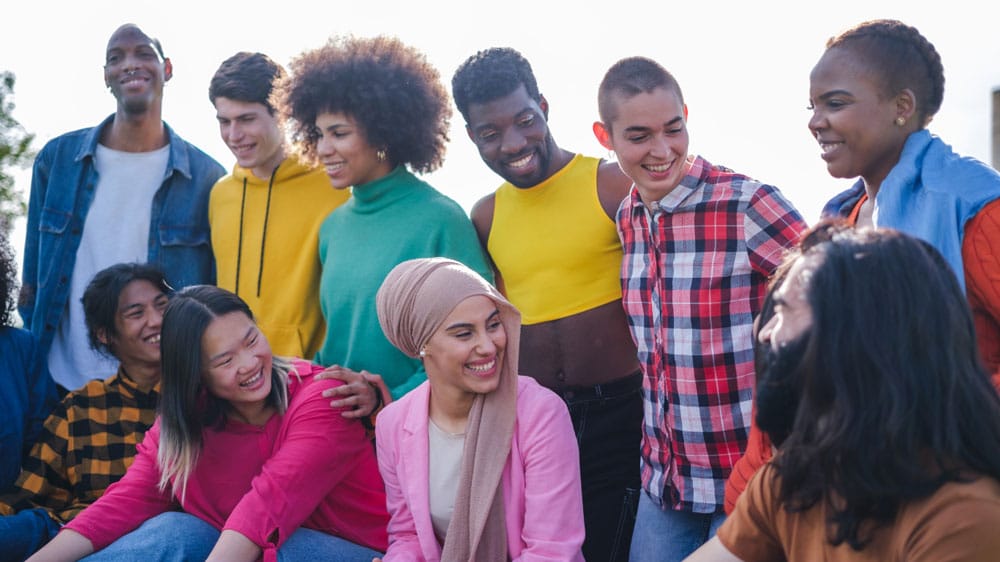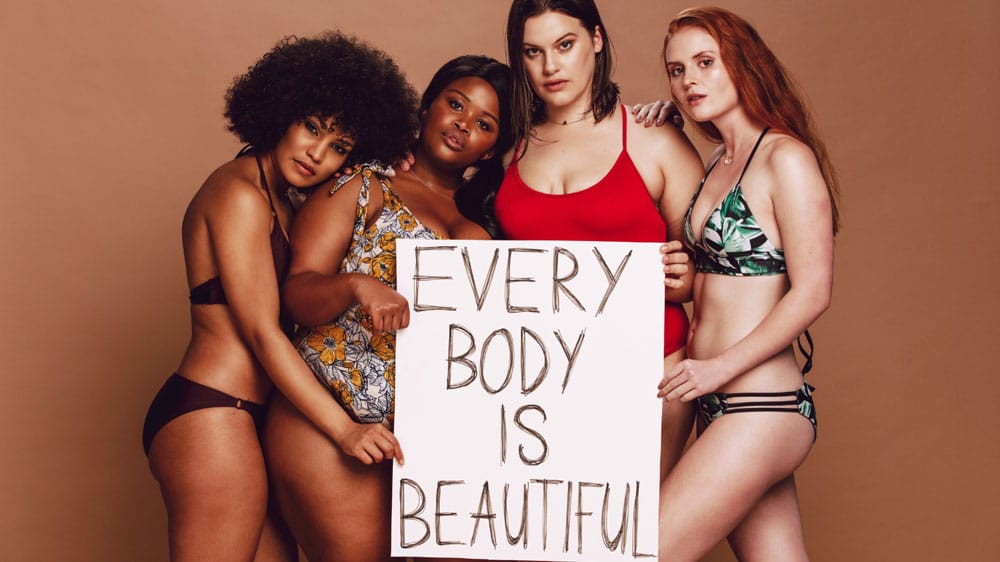Introduction: A Journey to Well-Being
Picture yourself navigating the many facets of life, seeking harmony among health, relationships, and a deeper sense of self. Amid this pursuit, sexual health often lingers in the shadows—misunderstood or underappreciated. Yet, it is an integral part of our overall well-being, intricately connected to every aspect of who we are. But what does sexual health truly mean, and how can we begin to nurture it in meaningful ways?
The answer lies in understanding its core components: physical, emotional, social, and mental health. Each element plays a unique and invaluable role in shaping a more balanced and satisfying life, much like individual pieces in a vibrant and cohesive mosaic. Embracing these dimensions is not limited by age, background, or circumstance; it is a vital journey for everyone, empowering us to create a healthier and more fulfilling relationship with ourselves and others.
Physical Health: The Foundation of Sexual Well-Being
Physical health serves as the bedrock upon which a fulfilling sexual life is built. It’s more than just the absence of illness; it’s about understanding and respecting your body’s intricate workings. This starts with familiarizing yourself with your sexual anatomy and physiology—the map and mechanics of your intimate self. Knowing how your reproductive organs function and how hormones influence your desires empowers you to make informed decisions about your sexual well-being. Think of it as understanding the instrument you play, allowing you to create a beautiful symphony of intimacy.
Safe Sex Practices: A Cornerstone of Physical Well-Being
A crucial aspect of physical sexual health is practicing safe sex. This isn’t just about avoiding unwanted pregnancy; it’s about protecting your overall well-being. Safe sex practices, like consistently using condoms, act as a barrier against sexually transmitted infections (STIs). Remember, protection is an act of self-care and respect for your partner. For example, consistent condom use significantly reduces the risk of contracting STIs like chlamydia, gonorrhea, syphilis, and HIV. These infections can have serious long-term health consequences if left untreated, emphasizing the importance of proactive protection.
STI prevention goes beyond just using condoms. Regular testing is vital, even if you feel healthy, as many STIs don’t present noticeable symptoms. Vaccinations, such as the HPV vaccine, offer protection against specific infections that can lead to serious health issues, including certain types of cancer. Furthermore, understanding your risk factors and making informed choices about your sexual partners are critical components of STI prevention.
Proactive Reproductive Health Management

Reproductive health is another vital area of physical sexual health, and it extends far beyond contraception. It encompasses understanding your menstrual cycle, recognizing signs of fertility, and managing reproductive health conditions. For women who menstruate, knowing the phases of your cycle can help you understand fluctuations in your mood and libido. Reproductive health also includes access to quality healthcare for screenings, preventative care, and treatment of any reproductive health concerns. Hence, it’s about being proactive in managing your reproductive health, whether this means planning for a family or simply maintaining overall well-being.
So, how can you take charge of your sexual health as a component of your physical health? First, prioritize regular check-ups with your healthcare provider. These appointments provide a safe space to discuss concerns, get tested for STIs, and receive personalized advice. Secondly, educate yourself about safe sex practices and reproductive health. Reliable sources like reputable websites and healthcare professionals can provide accurate information. Thirdly, make lifestyle choices that support your overall well-being, such as eating a balanced diet, exercising regularly, and managing stress. Remember, your sexual health is an integral part of your overall health, and taking care of your body is an act of self-love and empowerment. Building a strong physical foundation for a healthy and satisfying sexual life can be achieved using these steps.
Nutrition and Sexual Health: Fueling Vitality

The human body is a remarkable system, and just like any well-functioning machine, it needs the right fuel to perform at its best. Nutrition plays a crucial role in every aspect of our health, including sexual well-being. The food we eat doesn’t just nourish us; it influences our energy levels, hormonal balance, circulation, and emotional state—all of which are integral to a fulfilling and healthy intimate life.
Essential Nutrients for Sexual Health
Certain nutrients are very important for supporting sexual health. Foods rich in zinc, such as nuts, seeds, and shellfish, help maintain hormone levels and promote fertility. Omega-3 fatty acids found in fatty fish like salmon boost blood circulation, which is vital for physical responsiveness and vitality. Similarly, vitamin E, often called the “fertility vitamin,” supports reproductive health and aids in regulating hormones. Including these nutrients in your diet can significantly enhance overall well-being.
The Importance of Circulation and Blood Flow
Good circulation is another essential aspect of sexual health. Without healthy blood flow, the body struggles to respond to intimacy. Consuming nitrate-rich foods, such as leafy greens and beets, can improve circulation by relaxing blood vessels and ensuring blood flows efficiently. Citrus fruits, packed with vitamin C, also help to protect blood vessels and maintain proper function, making them an excellent addition to a healthy diet.
Energy levels play a significant role in physical intimacy, and what you eat has a direct impact on your stamina. Whole grains like oats, quinoa, and brown rice provide a steady source of energy throughout the day, unlike sugary snacks that cause quick energy spikes followed by crashes. Staying hydrated is just as important; even mild dehydration can lead to fatigue, which may affect both your physical and emotional well-being.
Managing Stress with the Right Foods
Stress can be a barrier to a healthy sexual life, but nutrition can play a surprising role in managing it. Certain foods, such as dark chocolate, are known to reduce stress hormones and enhance mood. Bananas, with their high vitamin B6 content, support the nervous system and help the body manage anxiety. By choosing foods that promote relaxation and emotional balance, you can create a positive environment for intimacy to thrive.
Foods to Avoid for Better Sexual Health
On the flip side, it’s wise to limit foods that can negatively impact sexual health. Highly processed foods, loaded with unhealthy fats and sugars, contribute to inflammation and can disrupt hormone balance. Excessive alcohol consumption can also interfere with quality sleep and reduce physical energy, further diminishing overall vitality. Making mindful choices about what to avoid is just as important as focusing on the foods that nourish you.
Ultimately, nutrition is about more than just individual foods—it’s about creating a balanced and holistic approach to your health. With the combination of nutrient-rich diet and regular exercise, adequate sleep, and emotional connection, you can build a strong foundation for a healthy and fulfilling life. This integrated approach supports not only sexual health but also physical and emotional harmony, helping you to feel your best in every aspect of your life. Nutrition truly is the fuel that keeps the engine of well-being running smoothly.
Emotional Health: Confidence and Connection for Intimacy

Emotional health, often overlooked, is the heart of a satisfying sexual life. It’s the inner compass guiding us toward confidence, connection, and, as well, a sense of wholeness. Just as physical health provides the foundation, emotional well-being is the atmosphere through which healthy sexual experiences thrive. It’s about recognizing that our feelings, thoughts, and self-perception significantly impact our intimate lives.
Understanding Emotional Well-Being Through Self-Awareness
Understanding emotional well-being begins with self-awareness. This involves tuning into your inner landscape, acknowledging your emotions, and recognizing how they influence your sexual experiences. For instance, feelings of anxiety or stress can significantly dampen libido, while feelings of joy and security can enhance intimacy. This self-awareness isn’t about judgment; it’s about understanding the intricate dance between your emotions and your sexuality.
Body Image and Self-Acceptance
A critical aspect of emotional health is body image and self-acceptance. In a world saturated with unrealistic beauty standards, embracing your body as is, can be challenging. However, cultivating self-acceptance is essential for sexual confidence. Recognizing that your body is unique and worthy of love and respect, regardless of societal pressures, is the ultimate goal. Think of it as reframing your perspective; instead of focusing on perceived flaws, celebrate your body’s strengths and abilities.
Building Self-Esteem for Healthy Relationships
Furthermore, building self-esteem is another cornerstone of emotional well-being, particularly in the context of healthy relationships. Your sense of self-worth directly impacts how you interact with your partner and how you perceive yourself in intimate situations. When you value yourself, you’re more likely to establish and maintain healthy boundaries, communicate your needs effectively, and engage in fulfilling sexual experiences. This is basically understanding that you deserve to feel good about yourself and your relationships.
The Power of Emotional Intimacy
Emotional intimacy deepens connections and fosters a sense of security in relationships, thereby creating a safe space where you and your partner can share your feelings, vulnerabilities, and desires without fear of judgment. This emotional closeness enhances physical intimacy, making sexual experiences more meaningful and satisfying. Open communication, empathy, and mutual support are essential ingredients for building emotional intimacy.
Consent and Emotional Safety: Foundations of Trust
By and large, the role of consent and emotional safety cannot be overstated. Consent is not just a legal requirement; it’s an emotional imperative. It’s about ensuring that all sexual interactions are based on mutual respect, clear communication, and enthusiastic agreement. Emotional safety means creating an environment where both partners feel comfortable expressing their needs, setting boundaries, and sharing their feelings without fear of rejection or coercion. It’s about fostering a sense of trust and security that allows for genuine intimacy.
Taking Charge of Emotional Well-Being
So, how can you take charge of your emotional well-being as a component of your sexual health? This is where the practice of self-compassion comes into play. Be kind and understanding towards yourself, especially when dealing with difficult emotions or body image issues. We can also take charge of our emotional well-being by cultivating healthy communication skills. This has to do with learning to express your feelings and needs assertively and respectfully.
Additionally, seeking support when needed is also very important. Talking to a therapist, counsellor, or trusted friend can provide valuable insights and tools for managing emotional challenges. Finally, prioritizing self-care activities that promote relaxation, stress reduction, and emotional balance, whether meditation, exercise, or spending time in nature, finding what works for you and making it a regular part of your routine helps too. Hence, nurturing your emotional well-being is an investment in your overall health and happiness, leading to more fulfilling and satisfying sexual experiences.
The Impact of Stress and Anxiety on Sexual Health

The Connection Between Mental and Sexual Health
Our mental state and sexual well-being are closely connected, and stress or anxiety can significantly affect this balance. These challenges aren’t just “in our heads”—they often show up in real and noticeable ways, affecting our intimate lives and relationships.
Barriers to Intimacy Caused by Stress and Anxiety
Stress and anxiety can create barriers to intimacy in several ways. Performance anxiety, for instance, is like an inner critic, planting seeds of doubt during moments of closeness. This can lead to a cycle of worry and avoidance, making it hard to fully connect with a partner. Similarly, relationship anxiety may cause feelings of insecurity or fear of rejection, which can weaken trust and push partners apart. Even everyday stresses, such as work deadlines or financial pressures, can take a toll, disrupting our focus and energy for intimacy.
Chronic stress also affects our bodies, triggering hormonal imbalances that lower sexual desire. When the body produces too much cortisol, the stress hormone, it can suppress other important hormones like testosterone and estrogen, which are key for maintaining a healthy libido. Physical symptoms of stress—like muscle tension, fatigue, and restlessness—can make it difficult to relax, which is essential for meaningful intimacy.
Anxiety disorders, including Generalized Anxiety Disorder (GAD) or Post-Traumatic Stress Disorder (PTSD), can intensify these challenges. For some, past traumas or persistent worry can create emotional walls, making it hard to feel comfortable or safe in intimate situations. Social anxiety and body image concerns can add another layer of difficulty, creating feelings of self-doubt or insecurity that impact how we connect with others.
Emotional Distancing: A Hidden Consequence
The effects of stress and anxiety go beyond the mind. Emotional distancing between partners can create a sense of isolation, making it harder to experience genuine connection. Libido may decrease, arousal might seem out of reach, and the joy of intimacy can feel elusive. It’s a cycle that can leave both partners feeling frustrated or misunderstood.
Breaking this cycle starts with understanding and addressing the root causes of stress and anxiety. Practicing stress management techniques, like mindfulness, exercise, or deep breathing, can help regulate hormones and calm the mind. Therapy is another valuable tool—it provides a safe space to explore emotional challenges and past experiences while building resilience. Honest communication with a partner can also foster trust and understanding, creating an environment where both individuals feel supported.
Lifestyle Changes to Support Mental and Sexual Health
Lifestyle changes, such as maintaining a balanced diet, getting regular sleep, and carving out time for relaxation, can support both mental and sexual health. Rebuilding intimacy takes time, but with patience, care, and an integrated approach, it’s possible to rediscover connection and pleasure.
When we recognize how closely linked our mental and sexual health are, we can take steps to nurture both. This holistic approach not only improves intimacy but also enhances overall well-being, allowing us to build healthier, stronger relationships.
Holistic Well-Being: Aligning Mind, Body, and Emotions

The Interconnection of Mind, Body, and Emotions
The pursuit of optimal sexual health is far more than just physical; it encompasses the mind, body, and emotions, working together as one. A fulfilling and healthy sexual life emerges when these interconnected aspects are balanced and nurtured. Separating physical health from emotional or mental well-being is like looking at just one brushstroke in a painting—the full beauty and depth remain unseen. True sexual well-being is a state of harmony, where the mind, body, and emotions come together to form a vibrant and balanced whole.
Practices to Promote Balance and Vitality
Achieving this balance requires mindful attention to how we care for ourselves. Stress, for instance, can disturb this harmony and impact both mental and physical health. Incorporating stress management techniques into everyday life is crucial. Practices like mindfulness help anchor us in the present moment, giving us the clarity and calm needed to face daily challenges. Meditation goes deeper, offering a chance to cultivate inner peace by quieting the mind. Exercise, whether it’s a walk through nature, a gym session, or a relaxing yoga practice, is ]another powerful tool to release tension, boost mood, and restore vitality.
A holistic approach also involves nourishing the body with wholesome, nutrient-rich foods and ensuring that we get enough rest. Quality sleep allows both the mind and body to recharge, while a balanced diet provides the essential energy and nutrients needed to function at our best. Strong, healthy relationships are another cornerstone of holistic well-being. Built on trust, empathy, and open communication, these relationships create a safe and supportive environment where sexual health can flourish.
Through aligning mind, body, and emotions, we nurture a sense of balance and harmony that enriches every aspect of our lives. When we embrace this holistic perspective, we not only enhance our sexual health but also build a foundation for overall happiness and resilience, allowing us to lead richer, more meaningful lives.
Spiritual Well-Being: Exploring Sexual Health Beyond the Physical and Emotional

The Spiritual Dimension of Sexual Health
Sexual health is often discussed in terms of physical vitality and emotional connection, but there’s another profound dimension that lies beyond the tangible. Spiritual well-being, though deeply personal and unique to each individual, can play a powerful role in shaping one’s sense of fulfillment and intimacy. It goes beyond the physical and emotional and into questions of purpose, connection, and the deeper meaning of relationships.
At its core, spiritual well-being in the context of sexual health isn’t tied to any specific religion or belief system—it’s about cultivating a sense of harmony and authenticity in one’s life. For some, this may be rooted in faith or cultural traditions, while for others, it might stem from mindfulness, meditation, or a sense of interconnectedness with the universe. It’s about aligning with your inner values and bringing that alignment into your intimate relationships.
The Power of Presence in Intimacy
Consider the concept of presence. In a world filled with distractions, being truly present—physically, emotionally, and spiritually—can transform intimacy into something deeply meaningful. Practices like meditation or mindful breathing can help quiet the noise of daily life, allowing individuals to connect with their partners on a profound level. This kind of connection nurtures trust, vulnerability, and a sense of shared purpose, enriching both personal and shared experiences.
Spiritual well-being also fosters self-awareness, which is essential for embracing your own identity and desires without judgment. When you feel grounded and in touch with your inner self, you’re better equipped to communicate openly and confidently in your relationships. This self-awareness creates a safe and supportive space for mutual understanding, encouraging both individuals to honour their unique paths while walking together on a shared journey.
Letting Go of Shame and Expectations
Another key aspect of spiritual well-being is the ability to let go of shame and societal expectations. Many people carry unspoken fears or insecurities about their bodies, desires, or experiences due to societal norms or cultural taboos. Spirituality invites individuals to release these burdens, offering the freedom to embrace themselves fully, just as they are. It’s about finding strength in vulnerability and recognizing that our imperfections are part of what makes us beautifully human.
Rituals or symbolic practices can also add depth to intimacy, providing a sense of connection beyond the moment. Whether it’s lighting candles to set a calming atmosphere, sharing affirmations of gratitude, or engaging in a reflective conversation, these small gestures can reinforce a sense of sacredness in the relationship. They remind us that intimacy isn’t just a physical act but a meeting of souls.
Spiritual well-being reminds us that sexual health is about more than mechanics or fleeting moments. It’s about weaving a tapestry of connection, love, and understanding that honors the whole self—mind, body, and spirit. When we nurture our spiritual well-being, we open the door to relationships that are not only fulfilling but transformative, shaping a life of deeper meaning and joy.
Understanding the Role of Society in Sexual Health

The Interplay of Society and Sexual Health
Sexual health does not exist in isolation—it is intricately woven into the fabric of our social lives. It is shaped by the relationships we build, the conversations we engage in, and the cultural landscapes that surround us. To fully embrace sexual well-being, it is essential to recognize the powerful role society plays and to foster an environment that supports holistic health.
At the core of our social well-being are the relationships we cherish. These bonds—whether romantic, platonic, or familial—serve as the foundation of intimacy, trust, and connection. Healthy relationships create a safe space where we can explore our desires, set boundaries, and experience the comfort of being valued. They are not merely transactional but transformative, built on respect, equality, and open communication. These qualities cultivate an atmosphere where sexual health can thrive, free from fear or judgment.
The Importance of Communication
Communication is the lifeline of these relationships and an essential tool in navigating sexual health. It enables us to articulate our needs, share our boundaries, and express our emotions clearly and respectfully. Honest dialogue helps build trust and intimacy, making space for conversations about sensitive topics like consent, sexual preferences, and relationship challenges. Effective communication strengthens connections, creating an environment where individuals feel truly heard and valued.
Consent and respect are fundamental to healthy interactions, both within personal relationships and in the broader societal context. Consent is an ongoing, mutual process that requires clear and enthusiastic agreement. It goes beyond a simple “yes” or “no,” fostering a shared understanding that ensures every interaction is free from pressure or coercion. Respect, meanwhile, acknowledges the autonomy of every individual—their right to make choices about their own bodies and sexuality without judgment or intrusion.
The Impact of Societal Norms and Media Portrayals
Societal norms, cultural beliefs, and media portrayals have a significant influence on how we perceive sexuality. These external forces can shape attitudes and expectations in ways that may feel limiting or unrealistic. Developing a critical awareness of these influences empowers us to align our decisions with our personal values rather than conforming to external pressures. By challenging stereotypes and advocating for inclusivity, we pave the way for healthier and more authentic expressions of sexuality.
Promoting social health is a continuous journey. It involves building relationships rooted in trust, practicing open communication, and championing consent and respect. It also requires actively addressing societal stigmas and fostering a culture of acceptance and inclusivity. Sexual health is not only an individual pursuit but also a shared responsibility—one that calls for a collective effort to create a supportive and empowering social environment.
When society embraces this responsibility, we can cultivate a world where everyone feels respected, understood, and free to explore their sexuality with confidence. By nurturing an inclusive and compassionate community, we ensure that sexual health is not just a personal endeavor but a shared foundation for collective well-being.
Cultural Sensitivity and Diversity in Sexual Health

The Impact of Cultural Contexts on Sexual Health
A universal aspect of human well-being is sexual health, yet it is profoundly shaped by cultural, religious, and societal contexts. Understanding cultural sensitivity and embracing diversity is essential to fostering inclusivity in discussions about sexual health. This perspective allows individuals and communities to navigate their unique values and beliefs while promoting respectful and open dialogue.
Around the world, cultural norms greatly influence how people view topics like intimacy, relationships, and reproductive health. In some societies, open conversations about sexual health are encouraged, while in others, they remain shrouded in taboo. These differences stem from deeply rooted traditions, social expectations, and historical experiences. Recognizing this diversity is the first step in building a more inclusive understanding of sexual health.
Take, for example, the variety of ways people approach relationships and intimacy. While one culture may prioritize open expression and communication, another may value modesty and privacy. Neither approach is inherently right or wrong; instead, they reflect distinct worldviews shaped by history and community experiences. Respecting these differences is essential to creating an environment where individuals feel safe and understood.
Breaking Stigma Through Cultural Sensitivity
Cultural sensitivity also plays a critical role in addressing stigma. In many communities, misconceptions and judgment about sexual health issues—such as contraception, sexually transmitted infections (STIs), or sexual orientation—can create barriers to education and support. By approaching these topics with empathy and an open mind, healthcare providers, educators, and advocates can break down these barriers and build trust within diverse populations.
Including Marginalized Groups in the Conversation
Diversity in sexual health also encompasses the experiences of marginalized groups, including people of varying gender identities, sexual orientations, and abilities. Inclusive conversations about sexual health must honor these unique perspectives, ensuring that all individuals have access to resources, education, and care that align with their needs. This commitment to inclusivity strengthens communities and fosters a sense of belonging.
The Role of Education in Bridging Cultural Divides
Education is a powerful tool for bridging cultural divides. Culturally sensitive sexual health programs that respect traditions while providing accurate and non-judgmental information can empower individuals to make informed choices. For example, using language and materials tailored to specific cultural contexts can help reach communities that might otherwise feel excluded from mainstream discussions.
At its heart, cultural sensitivity in sexual health is about celebrating the rich tapestry of human diversity. It is about finding common ground while honoring unique experiences and perspectives. By embracing inclusivity, society can foster healthier relationships, break down harmful stereotypes, and ensure that everyone—regardless of their background—has the opportunity to lead a fulfilling and empowered life. In doing so, we not only improve sexual health but also strengthen the bonds of understanding and connection across cultures.
Sexual Orientation and Identity: Celebrating Diversity

The Personal Nature of Sexual Health
Deeply personal is sexual health, and one of its most important aspects is the celebration of diversity in sexual orientation and identity. Our individual identities, shaped by our experiences, beliefs, and emotions, are integral to how we connect with ourselves and others. Recognizing and embracing this diversity is essential for fostering a society built on understanding, respect, and inclusivity.
Sexual orientation and identity encompass a wide range of experiences, from being heterosexual, gay, lesbian, bisexual, or asexual to identifying as nonbinary, transgender, gender-fluid, etc. These identities are more than mere labels—they represent deeply personal truths about who people are and how they navigate the world. For many, embracing their orientation or identity can be a profound journey of self-discovery, one that deserves respect and affirmation from family, friends, and the larger community.
Barriers to Acceptance: Overcoming Prejudice and Stigma
However, societal attitudes and prejudices can create barriers for people exploring their sexual orientation and identity. Discrimination, stigma, and misunderstanding can lead to feelings of isolation and anxiety. Recognizing the importance of acceptance and education is key to breaking down these barriers. By creating safe spaces where individuals feel free to express who they are without fear of judgment, we foster a sense of belonging and empowerment.
The Fluidity of Sexual Orientation and Identity
Inclusivity also means acknowledging that sexual orientation and identity are not one-size-fits-all. They can evolve over time, shaped by personal growth and changing life circumstances. This fluidity highlights the need for open-mindedness and a commitment to listening without assumptions. Respecting each person’s journey, regardless of where they are on the spectrum of sexual orientation and identity, is a powerful way to celebrate diversity.
The Role of Education in Promoting Inclusivity
Education plays a significant role in fostering understanding. Schools, workplaces, and communities can benefit from inclusive practices and programs that highlight the spectrum of identities and orientations. These initiatives help dispel myths, reduce prejudice, and promote empathy, creating a foundation for healthier relationships and stronger societal connections.
Representation in Media and Culture
Equally important is representation in media and culture. Seeing diverse identities portrayed authentically in films, books, and other platforms can be life-affirming, particularly for those who feel marginalized. Representation not only normalizes diversity but also sends a powerful message: everyone deserves to be seen, heard, and valued for who they are.
Celebrating diversity in sexual orientation and identity is not just about acceptance—it’s about embracing the uniqueness that each individual brings to the world. By building a society where people feel free to express themselves fully, we create a culture of compassion and respect. In doing so, we honor the richness of human experience and affirm that everyone, regardless of their identity, has a right to dignity, understanding, and love.
Overcoming Shame: Cultivating Openness in Sexual Health

The insidious grip of stigma and shame surrounding mental health and sexuality creates a formidable barrier to well-being, preventing individuals from seeking the help they desperately need. This culture of silence, fueled by fear of judgment and societal disapproval, perpetuates a cycle of isolation and suffering. To dismantle these barriers and cultivate a culture of understanding, we must champion open conversations about these sensitive topics.
The Power of Sharing Personal Experiences
The power of shared experience cannot be overstated. When individuals bravely share their stories, they break down the walls of isolation, creating a sense of community and belonging. These narratives, often imbued with vulnerability and honesty, resonate with others who may be struggling with similar challenges, reminding them that they are not alone. By normalizing conversations about mental health and sexuality, we reduce the stigma associated with these topics, making it easier for individuals to seek help without fear of reprisal.
Creating safe spaces, both physical and virtual, is essential for fostering open dialogue. These spaces, characterized by confidentiality, empathy, and non-judgmental listening, provide a haven where individuals can share their experiences without fear of being shamed or ridiculed. Support groups, online forums, and therapy sessions offer valuable opportunities for individuals to connect with others who understand their struggles, providing a sense of validation and encouragement.
Furthermore, education plays a crucial role in breaking down stigma and shame. By providing accurate information about mental health and sexuality, we dispel myths and misconceptions. replacing them with knowledge and understanding. Educational initiatives, such as workshops, seminars, and public awareness campaigns, can help raise awareness about the prevalence of mental health and sexual health issues, promoting empathy and reducing prejudice.
Challenging Societal Norms and Cultural Beliefs
Challenging societal norms and cultural beliefs that perpetuate stigma is also essential. We must actively advocate for policies and practices that promote inclusivity and acceptance, ensuring everyone has access to the resources and support they need to thrive. By fostering a culture of openness and understanding, we create a society where individuals feel empowered to embrace their sexuality and seek help for their mental health, leading to a more fulfilling and equitable world for all.
The Role of Communication in Sexual Health

At the heart of every healthy relationship lies communication. It is a bridge that connects individuals, allowing them to express their thoughts, desires, and concerns openly. When it comes to sexual health, effective communication is not just helpful—it is essential. It fosters understanding, builds trust, and empowers individuals to address sensitive issues with confidence and mutual respect.
Breaking the Silence Around Sexual Health
Conversations about sexual health can sometimes feel uncomfortable or even taboo due to cultural norms, personal insecurities, or fear of judgment. However, avoiding these discussions can lead to misunderstandings, unmet needs, and emotional distance. Open and honest dialogue, on the other hand, breaks down barriers, making it easier for individuals to share their feelings, boundaries, and expectations. This openness nurtures deeper connections and paves the way for more fulfilling relationships.
Clear communication also plays a crucial role in addressing stigma surrounding sexual health topics. Discussing subjects like contraception, sexually transmitted infections (STIs), or sexual orientation in an honest and non-judgmental way normalizes these conversations, helping to dispel myths and misinformation. When individuals feel free to talk about their experiences without shame, it promotes awareness and creates a supportive environment where everyone can seek help or guidance without fear.
Equally important is the role of communication in setting boundaries and understanding consent. Being able to articulate one’s needs, limits, and desires clearly—and encouraging a partner to do the same—ensures that interactions are respectful and mutually enjoyable. This kind of dialogue builds trust and reinforces the foundation of any healthy relationship.
The Power of Active Listening
Listening is just as vital as speaking when it comes to communication. Active listening—showing empathy, being present, and truly understanding the other person’s perspective—strengthen relationships and foster emotional intimacy. It ensures that both individuals feel valued and heard, which is especially important in discussions about sensitive topics.
For many, learning how to communicate effectively about sexual health may take time and practice. Workshops, therapy sessions, or educational programs focused on relationship skills can provide valuable tools to navigate these conversations. Encouraging young people to engage in these discussions through comprehensive sexual education can also empower future generations to prioritize open and respectful communication in their relationships.
Through the encouragement of open dialogue about sexual health, we not only strengthen individual relationships but also contribute to a culture of understanding and respect. Communication is the key that unlocks trust, intimacy, and connection, creating a space where individuals can thrive both personally and together. It reminds us that when words flow freely, so do compassion, care, and connection.
Transforming Sexual Health Through Education

Sexual health education transcends the traditional boundaries of academic subjects, emerging as a vital force for individual empowerment and societal progress. It’s not merely about disseminating biological facts; it’s about equipping individuals with the knowledge, skills, and critical thinking abilities necessary to navigate the complexities of their sexuality with confidence, responsibility, and unwavering respect for themselves and others. Why does sexuality education matter? Because, it explores the very essence of human connection, fostering healthy relationships, promoting informed decision-making, and cultivating a positive and secure sense of self. It recognizes that sexuality is an inherent and integral part of the human experience, a tapestry woven with threads of physical, emotional, and social dimensions, and that every individual, regardless of background or circumstance, deserves access to accurate and comprehensive information.
Why Sexuality Education Matters
Inclusive and accessible education for all is the cornerstone of effective sexual health initiatives. This mandate extends beyond mere physical access, demanding a nuanced understanding of diverse needs and experiences. It entails tailoring educational approaches to meet the specific requirements of individuals across lifespans, encompassing diverse age groups, gender identities, sexual orientations, cultural backgrounds, and abilities. It’s about creating safe and supportive learning environments, both within formal educational settings and community-based programs, where open and honest conversations can flourish, free from judgment or stigma. It’s about ensuring that everyone, including those with disabilities, individuals from marginalized communities, or those living in remote areas, has equitable access to the resources and support they need to make informed and empowered choices about their sexual health. This inclusivity also extends to the very fabric of the educational content itself, encompassing a broad spectrum of topics, including consent, healthy relationships, body image, sexual orientation, gender identity, and the diverse expressions of human sexuality.
Lifelong Learning and Responsible Decision-Making
Lifelong learning and the cultivation of responsible decision-making are pivotal components of effective sexual health education. It’s not a singular event confined to a specific stage of life, but rather an ongoing process of acquiring knowledge, developing critical thinking skills, and adapting to the evolving landscape of sexual health. As individuals journey through different phases of life, from adolescence to adulthood and beyond, their sexual health needs and concerns evolve, necessitating continuous learning and adaptation. This lifelong approach empowers individuals to make informed and responsible decisions about their sexual behavior, relationships, and reproductive health, fostering a sense of agency and self-efficacy. It cultivates the ability to critically evaluate information, navigate complex ethical dilemmas, and make choices that align with their personal values and well-being.
Building a Compassionate and Empowered Future
The transformative impact of comprehensive sexual health education on society is undeniable. By equipping individuals with the tools they need to make informed choices, we can significantly reduce rates of unintended pregnancies, sexually transmitted infections, and sexual violence, creating safer and healthier communities. It promotes gender equality, challenging harmful stereotypes and dismantling patriarchal structures that perpetuate inequality and oppression. It fosters a culture of respect and consent, where every individual’s autonomy and boundaries are valued and protected. Moreover, comprehensive sexual health education contributes to a more informed, responsible, and engaged citizenry, capable of participating in healthy and fulfilling relationships and contributing to a more just and equitable society. It’s about building a future where every individual, regardless of their background or circumstances, has the opportunity to experience healthy, fulfilling, and empowered sexual lives, contributing to a more vibrant and compassionate world.
Technological Advances and Their Impact on Sexual Health

The rapid progress of technology has revolutionized nearly every aspect of our lives, and sexual health is no exception. From education to healthcare and personal relationships, technological advancements have opened doors to better understanding, access, and support in ways that were unimaginable a few decades ago. These innovations are reshaping how individuals approach sexual health, breaking barriers, and promoting inclusivity along the way.
Telemedicine and Digital Health Platforms
One of the most significant advancements has been the rise of telemedicine and digital health platforms. These tools have made it easier for individuals to seek confidential advice and services related to sexual health from the comfort of their homes. Virtual consultations with healthcare professionals have become a lifeline for people in remote or underserved areas, granting them access to contraception, STI testing, and counseling services that might otherwise be out of reach. The convenience and privacy of these platforms empower individuals to take charge of their sexual health without fear of stigma or embarrassment.
Mobile apps have also emerged as powerful tools used in promoting sexual health. From period trackers that help individuals understand their reproductive cycles to apps that provide relationship advice and sexual education, these innovations cater to a broad spectrum of needs. Many of these apps are designed to be inclusive, offering tailored resources for diverse communities, including LGBTQ+ individuals. By putting information and tools directly into users’ hands, these apps enable people to make informed decisions and monitor their health with ease.
Education has seen a major transformation through technology as well. Interactive online courses, virtual workshops, and engaging digital content have made comprehensive sexual education more accessible than ever. These resources often go beyond traditional curricula, addressing topics like consent, healthy relationships, and inclusivity in a way that resonates with modern audiences. Social media platforms have also played a role in spreading awareness, with influencers and educators using their reach to spark meaningful conversations and combat misinformation.
Medical Advancements in Sexual Health
Beyond education and access to care, technology has enhanced sexual health through medical advancements. Innovations like wearable health devices and fertility trackers provide individuals with real-time insights into their reproductive health. Advances in contraception, such as long-acting reversible contraceptives and remote prescription services, have given people more control over their choices. Moreover, breakthroughs in treatments for sexual dysfunction and reproductive health conditions are continually improving quality of life for many.
However, as technology advances, challenges remain. Issues like data privacy, misinformation, and unequal access to digital tools must be addressed to ensure that these benefits are shared equitably. It’s important for policymakers, educators, and tech developers to work together to create safe, reliable, and inclusive systems that prioritize the well-being of all individuals.
The impact of technology on sexual health cannot be overstated. It has created opportunities for greater understanding, accessibility, and empowerment, enabling individuals to lead healthier, more informed lives. By embracing these advancements while addressing their challenges, society can continue to build a future where sexual health is supported by innovation, knowledge, and compassion.
Sexual Health Across the Lifespan

The Lifelong Journey of Sexual Health
Sexual health is a dynamic and evolving aspect of well-being that accompanies individuals through every stage of life. Just as physical, emotional, and mental health change over time, so too does sexual health, reflecting the diverse experiences, challenges, and opportunities that come with each phase of life. Taking a life-course perspective allows us to appreciate how sexual health develops, adapts, and thrives across different ages.
During adolescence, sexual health often begins with curiosity and discovery. This is a critical time when young people start to explore their identities, relationships, and boundaries. Comprehensive sexual education plays a vital role in equipping adolescents with accurate information about their bodies, consent, and safe practices. By fostering open dialogue and providing trusted resources, this stage lays the foundation for a healthy relationship with sexuality that carries into adulthood.
As individuals enter their 20s and 30s, sexual health becomes intertwined with personal relationships, intimacy, and reproductive choices. This is often a time of exploration and self-expression, where people may establish long-term partnerships or start families. Supporting sexual health during this stage involves access to contraception, fertility services, and education about maintaining physical and emotional well-being. Open communication with partners about desires, boundaries, and expectations becomes especially important in fostering fulfilling relationships.
In the 40s and 50s, hormonal changes, life transitions, and evolving priorities can influence sexual health. For many, this stage may include navigating menopause, andropause, or shifts in lifestyle that impact physical and emotional intimacy. While these changes can present challenges, they also offer opportunities for growth and deeper connection. Emphasizing self-care, seeking guidance from healthcare providers, and exploring new ways to nurture intimacy can help individuals continue to enjoy a satisfying and meaningful sexual life.
Later Life: Embracing Sexual Health with Confidence
Later in life, sexual health remains an integral part of overall well-being. Contrary to common misconceptions, aging does not diminish the capacity for intimacy or connection. Many older adults report fulfilling relationships and a renewed focus on emotional closeness. However, physical health conditions, medications, or social stigma may affect sexual expression during this stage. Encouraging open conversations with healthcare providers, addressing any physical concerns, and challenging societal stereotypes about aging and sexuality can empower older adults to embrace their sexual health with confidence.
Throughout the lifespan, sexual health reflects not only physical and emotional aspects but also cultural, social, and relational contexts. Each stage brings unique needs and experiences, reminding us that sexual health is not a fixed state but a lifelong journey. By acknowledging and supporting these changes, individuals can cultivate fulfilling and resilient relationships with themselves and others, regardless of age or circumstance.
Sexual Rights and Advocacy: Ensuring Access and Equality

Sexual health is not just a matter of personal well-being—it is also a fundamental human right. Ensuring that individuals can make informed and autonomous decisions about their bodies, relationships, and reproductive health is essential to creating a fair and equitable society. Sexual rights and advocacy aim to promote access to education, healthcare, and support, all while challenging the societal and legal barriers that hinder progress.
The concept of sexual rights is grounded in dignity, equality, and freedom. Everyone, regardless of gender, age, ethnicity, or sexual orientation, deserves access to resources that allow them to lead healthy and fulfilling lives. These rights include the ability to seek sexual and reproductive healthcare, access accurate information, and make decisions free from discrimination, coercion, or violence. When these rights are upheld, individuals are empowered to take control of their health and well-being.
Legal frameworks play a crucial role in supporting sexual rights. Policies and laws that protect individuals from sexual violence, ensure access to contraception and reproductive services, and support the rights of marginalized communities are vital in building a more inclusive society. For example, anti-discrimination laws that safeguard LGBTQ+ individuals from workplace or healthcare bias are essential for promoting equality. Similarly, comprehensive sexual education policies ensure that young people receive the knowledge they need to make informed choices and understand their rights.
Advocacy as a Catalyst for Change
Advocacy is the driving force behind creating and sustaining these legal protections. Activists, organizations, and community leaders work tirelessly to raise awareness, challenge harmful practices, and push for legislative change. They also play a critical role in dismantling stigma and shifting cultural attitudes that perpetuate inequality. Advocacy efforts often focus on amplifying the voices of those most affected, ensuring that their experiences shape policies and programs.
Despite progress, challenges remain. In many parts of the world, restrictive laws, cultural taboos, and lack of resources continue to limit access to sexual health services and education. Women, LGBTQ+ individuals, and those living in poverty are disproportionately affected, highlighting the urgent need for targeted interventions. Addressing these disparities requires collaboration between governments, organizations, and communities to create inclusive solutions that leave no one behind.
Sexual rights and advocacy are not just about addressing injustice; they are about creating opportunity. When individuals are free to access healthcare, express themselves, and make choices about their bodies without fear or constraint, they contribute to healthier, more equitable societies. Upholding these rights is a shared responsibility, one that requires continuous effort and commitment to building a world where access and equality are not privileges, but universal guarantees.
Conclusion: Embracing Your Lifelong Sexual Well-Being

Sexual health is an integral and vibrant part of the human experience, woven seamlessly into the many dimensions of our lives—physical, emotional, social, mental, and even spiritual. It is not a singular milestone but a continuous journey, requiring thoughtful engagement, personal reflection, and a commitment to growth.
At its core, physical health forms the foundation of sexual well-being. It goes beyond biological functions, encouraging us to nurture an awareness of our bodies, adopt safe and supportive practices, and prioritize reproductive health as a vital component of overall wellness. When we empower ourselves with knowledge, seek regular care, and make choices aligned with our values, we honor our physical selves as the cornerstone of vitality.
Equally essential is emotional health, which fosters self-acceptance, emotional resilience, and deep intimacy. It reminds us of the importance of cultivating self-esteem, embracing body positivity, and allowing ourselves the freedom to express desires without fear or judgment. Trust, mutual understanding, and respect create the foundation for genuine intimacy, enhancing the quality of our relationships and our connection with ourselves.
Cultural and societal influences also play a profound role in shaping sexual health. By acknowledging the importance of inclusivity and diversity, we can honor unique experiences while breaking down stigmas and challenging harmful stereotypes. When we foster cultural sensitivity and celebrate sexual orientation and identity, we pave the way for a world where everyone feels seen, respected, and valued.
Mental health acts as a quieter, yet equally significant, force in our sexual well-being. Challenges like stress, anxiety, or unresolved mental health issues can deeply impact intimacy and relationships. By promoting open conversations, normalizing these struggles, and fostering resilience through a culture of acceptance, we create a supportive environment for mental balance and emotional healing.
Education is a cornerstone of sexual health. Providing accurate, inclusive, and comprehensive information empowers individuals to make informed decisions and take greater control of their well-being. Whether through traditional teaching, digital innovations, or community wisdom, education ensures we can adapt to the complexities of our sexual health at every stage of life.
Technological progress has further broadened access to resources, healthcare, and knowledge. These advancements have empowered individuals to approach their sexual health with confidence and autonomy, while bridging gaps in care and equity.
Sexual health is a lifelong journey, evolving naturally through the stages of life. From discovery and growth in adolescence to renewed connections and intimacy in later years, every stage presents valuable lessons and opportunities for fulfillment.
By embracing all dimensions of sexual health—physical, emotional, social, mental, spiritual, and educational—we honour the fullness of who we are as individuals. This holistic perspective strengthens our relationships, fosters open communication, and empowers us to lead lives rooted in respect and care. Let this understanding inspire you to continue your own journey, to nurture your well-being, and to celebrate the rich and interconnected tapestry of your sexual health. Together, we can create a world where every person thrives with knowledge, compassion, and confidence.
Written By: Chinyere Okafor


